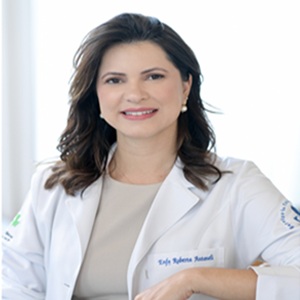Abstract Detail

Marileise Roberta Antoneli Fonseca
Universidade Estadual de Campinas (UNICAMP), Brazil
Abstract
Introduction: Despite the still precarious and unequal approach to the process of death and dying and the ways of offering care at this stage of life in medical courses, many resident physicians face the challenge of communicating difficult news and alleviating human suffering in all its aspects at the beginning of their careers. Objective: The study analyzed the perception of resident physicians regarding professional training in palliative care, in a public, tertiary-level university hospital in the interior of the state of São Paulo, Brazil. Methodology: Data were collected through semi-structured interviews, between April and August 2019, with 18 resident physicians who were in their first year of residency in internal medicine and general surgery and were analyzed using the content analysis method. The research was approved by CAEE number 99792018.2.0000.5404. Results: The reports of resident physicians converged into three thematic categories: the various aspects of the academic training process of resident physicians; knowledge and conceptions about palliative care among resident physicians in relation to care practices, work organization, and hospital structure. The statements of resident physicians express their anxieties and demands as individuals, physicians, and students. They mention the difficulty in communicating with patients and family members, especially when it comes to delivering difficult news, as one of the obstacles to good professional practice. They also identified the limits and gaps in the academic training received and the need for greater focus on teaching the premises of palliative care during undergraduate and specialization courses in medicine. According to the statements, the working conditions, as well as the dynamics and forms of organization of the hospital also reflect on the care of patients with serious diseases with no possibility of cure. Conclusion: Although the schedule of the resident physicians who participated in this study is quite exhaustive, with theoretical disciplines focused on the various medical subspecialties, it still does not prioritize disciplines and practices focused on teaching palliative care. It is necessary to develop practical theoretical teaching that incorporates the principles and foundations of palliative care, with discussion of technical situations experienced on a daily basis and the expansion of the multidisciplinary team.
Biography
2022: Specialist in Palliative Care from the National Academy of Palliative Care and the Brazilian Nursing Association.
2018 – 2022: Doctorate in Health, Interdisciplinarity and Rehabilitation. State University of Campinas - UNICAMP.
2015 - present: Nurse in the Palliative Care Service of the Hospital de Clínicas da Unicamp, Campinas/SP.
2012 – 2014: Master's degree in Health Sciences. State University of Campinas - UNICAMP.
2002 - 2005: Bachelor's degree in Nursing. Pontifical Catholic University of Campinas - PUC Campinas.
